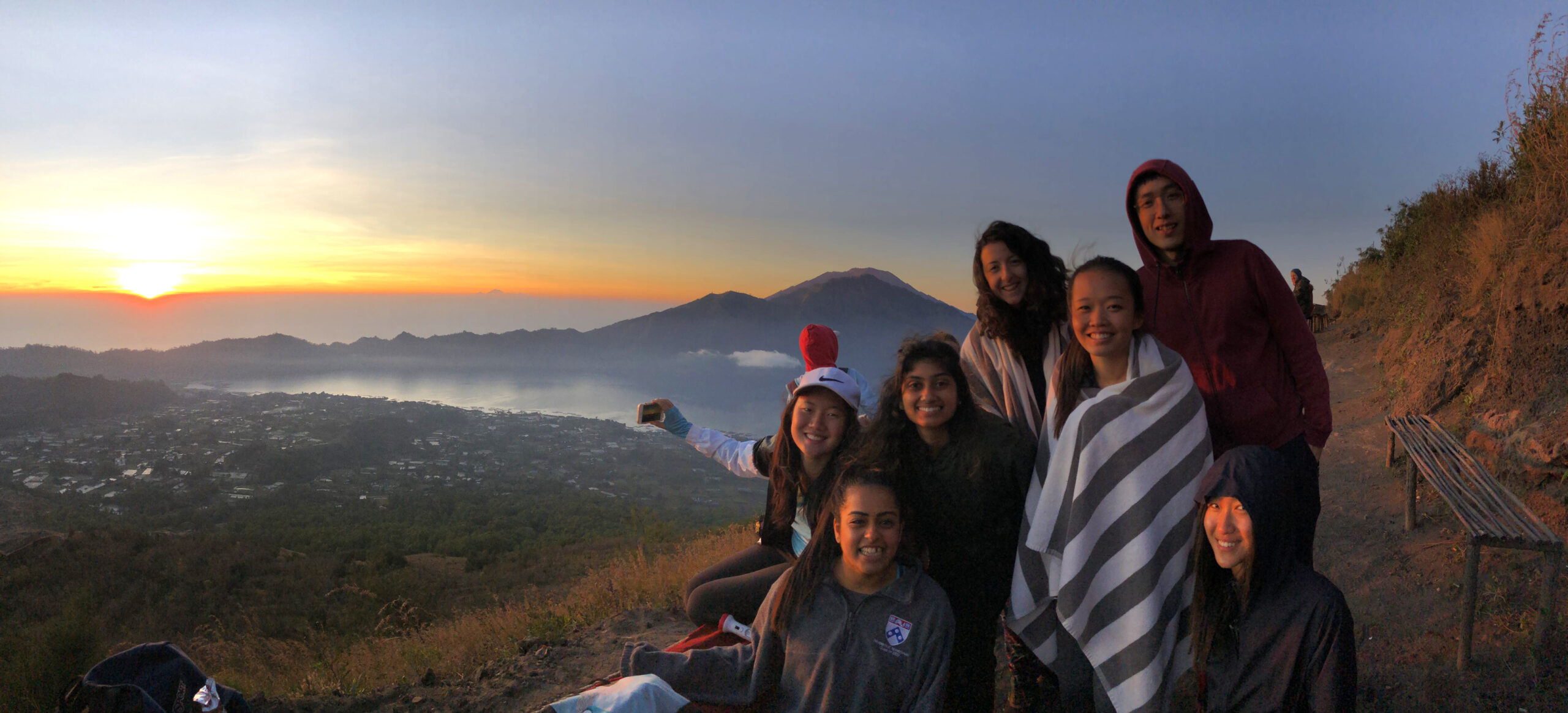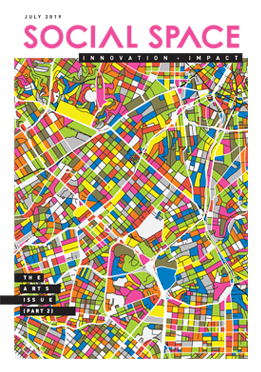The Effect of Media
By: Needhi Mehta, CAS ’20

Needhi (third from left) and other GRIP interns taking a hike up Mount Batur in Bali, Indonesia
Lien Centre for Social Innovation – Singapore
“Jhavadho, je che eh che!”- “Let it go, it is what it is” I hear my aunt tell my mother when she reminisces for a second on how my father’s favorite part of the naan was always the butter, as they prepare for dinner. My mom scoffs back, saying if my aunt were in my mom’s shoes, she would not merely “let it go”. My aunt laughs, turning to me in the masala-filled home Virginian home that we transformed into an Indian haven every Diwali, the Indian New Year: “I’m just trying to protect your mom.” November 2, 2011 had marked my family’s first Diwali without my father, who had unexpectedly passed away earlier that year from a heart attack. And, rather than recognizing the grief my mother was still experiencing, my aunt tried her best to keep my mother pushing forward – for that is all she knew.
Diwali was always my favorite holiday. It was the one time all year that all (three) of the Indian families in our rural town gathered and enjoyed a massive four-course meal together. My dad’s passing, however, forced my mother to make the daunting transition from housewife to head of our household, primary caregiver, and owner of our motel. I watched the overwhelming burden she faced, as her day-to-day became plagued with stress and loneliness from her new reality, from being one of the few Indian women in our small rural town, and from losing her life partner with little outside emotional support. Yet, my mother continued to raise me, never once stopping to think about her own mental health or seeing a therapist. She was never encouraged to do so, and as I witnessed on that Diwali, my mother’s grief had been reduced to the simple advice to “let it go”. Culturally, mental health was not a concept or a priority. Life was hard, but it was her duty to protect her family and put aside her own needs. Processing the aftermath of my father’s passing and the effects it has had on my mother has motivated me to dedicate my future to improving the dialogue surrounding cultural values and mental health.
This interest in mental health prompted me to explore single motherhood and mental health in Singapore. Through my internship at Social Space Magazine, a journal that works to catalyze social change and highlight social innovation around the country, I was able to do just this. My experience as an editorial associate showed me that the media – digital and print – serves as a unique platform for voices to be heard. I set out to explore mental health in single mothers in Singapore and write an article about what I learned. I interviewed women who were single mothers, talked to them through a semi-structured interview about their experiences with mental health and being a single parent. I then used their direct quotes to highlight their journeys and the changes that they want to see with regards to mental health initiatives as well as support for single mothers. I formed a particularly profound connection with one of the women. She and I would talk in her kitchen as the sun rose over the city and she fried fish for her son’s dinner later that day. She was a single mother, and had struggled to get back to work after taking time away for mental health reasons. I became her friend and listener, and, by extension, a listener for a demographic of women who have felt neglected in their communities. I learned that although countries like Singapore are rapidly progressing, there are individuals who still struggle to be heard.

I hope to one day become a doctor that works beyond the clinic walls to understanding cultural differences in mental health care access. My work taught me what it takes to perform research qualitatively and how to navigate interviewing about personal and difficult topics, two aspects that gave me newfound confidence in my future in health care. Though my internship has ended, I can look back and realize how much I have learned; this summer gave me the unsurpassable ability to effectuate real change across cultural communities.
The Global Research and Internship Program (GRIP) provides outstanding undergraduate and graduate students the opportunity to intern or conduct research abroad for 8 to 12 weeks over the summer. Participants gain career-enhancing experience and global exposure that is essential in a global workforce. Placements and funding awards are available.